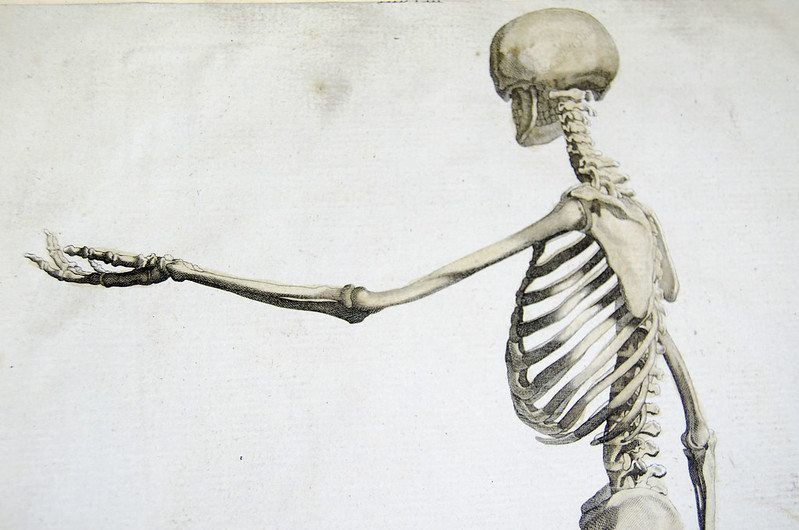On January 23rd, 2025, the nominations for the 97th Academy Awards were announced to the world— an announcement which, in a typical year, I might cover in a ‘picks and predictions’ style article, where I review every category and give my thoughts on nominees and possible winners. However, when I saw the specific nominations for the year, I knew I would have to write something more. To preface, I saw a lot of new releases this year– I say this not as a brag but just as an expression of my possible poor use of free time and of the fact that going into awards season, I already had my opinions and favorites locked and loaded. Though I knew some of my personal faves like I Saw The TV Glow and Challengers had little chance at getting nominated, I knew there were many other good movies released this year that deserved to fill up the awards roster, even if I wasn’t as crazy about them. I didn’t honestly intend to spare much thought towards the Oscars.
That was, of course, until I saw Emilia Perez, which I chose to watch after seeing it had received 13 nominations for this year’s Oscars (for clarification, this ties it with about 10 other films for the 2nd most nominations in Academy history, including last year’s Best Picture winner Oppenheimer). If you’re unaware of what exactly Emilia Perez is, allow me to describe it to you. The film, directed by French filmmaker Jacques Audiard, centers on Emilia Perez, a Mexican cartel boss who fakes her death in order to receive gender-affirming surgery and live her life as a woman, as well as Emilia’s ex-wife Jessie and Rita, the lawyer who facilitates it all. It is, in a few words, a “social issues drama”, which tackles multiple topics ranging from cartel violence to the transgender experience, which places it alongside other similar Academy Award nominees (and Best Picture winners) such as Crash and Green Book. Emilia Perez isn’t content to stop there, either, as it chooses to deliver its attempts at social messaging and bombastic emotion through the realm of music— the entire film is an original musical, a genre which itself saw a boost of cultural relevance in 2024 through films like (now 10 time Academy Award Nominee) Wicked. In a way, Emilia Perez is the perfect Oscar nominee: it’s a film that features many hot-button issues, delivering it in a genre that’s popular at the current moment and has been popular with the Academy in the past, headed up by a group of famous though yet-unrecognized performers giving the film their sincere all.
The issue is this: Emilia Perez is easily one of the worst films of the year, a film that gestures towards doing so much all whilst failing at everything it attempts to do. For one, its approach to the social issues it tries to make statements on is cleanly vapid at best and downright recklessly irresponsible at worst, which not only hurts the messaging of the movie but inherently removes any tension or conflict from the character dynamics by sterilizing any moral ambiguity or complexity the film might’ve had. Many more intelligent and informed people than me have written about the nuanced ways in which Emilia Perez entirely fumbles its approach to its subject matters, but even on a most basic level, the lack of detail or care that went into delivering the ideas the film obviously wanted to make a grandstanding statement on is obvious. As a trans film, the film manages to be dehumanizing in a surprising contrast of ways, having multiple supposedly supportive characters deadname and misgender Emilia in a way that goes completely unchallenged by the film, while simultaneously treating Emilia’s transition as some redemptive act that not only absolves her of her myriad crimes but turns her into a faultless saintly icon who helps the helpless, completely ignoring any of the knotty, human conundrums the premise had promised. As a film about Mexican cartel violence and the people harmed by it, it’s even worse, dealing in bad stereotypes as it makes vague gestures towards “corrupt politicians” and “changing society” whilst completely refusing to interrogate or really even challenge any specific person or system, especially not the now-supposed-saint Emilia for her decades-long leadership role in said violence– instead, the film simply acts as though her current role as a “good” rich person is enough to solve any of it. More than that, Emilia Perez is just bad entertainment— it’s ugly as sin, shot like a 2000s crime procedural TV show, with terrible songs filmed as blandly as possible in constant upper body medium to medium-wide shots, with melodrama that is about as engaging as cardboard being occasionally splattered with muted paint. While watching, I would’ve turned it off out of pure boredom if not for the morbid curiosity that something like this could possibly win Best Picture.
It’s not an accident that Emilia Perez turned out how it did either. At this point in the film’s disastrous online reception, it’s become no secret that the team behind the film put in little effort to engage with the people involved in the subjects it seeks to portray. When asked about how much he studied about Mexico in the making of the film, director Jaques Audiard said that he “didn’t study much”, alleging that “what [he] had to understand, [he] knew.” The film has also received much criticism for its lack of on-location filming– Emilia Perez was shot entirely on soundstages in France, save for five days of actual location filming in Mexico. Furthermore, the film has met controversy for its casting of mostly non-Mexican actors in lead roles, controversies which were inflamed by comments by the film’s casting director on how the team did “a big search” for Mexican actors for the main roles and supposedly could not find any, despite Mexico having a large and successful film industry. In general, the film’s production, from its French director to its lack of research to its disconnect from the very location it seeks to portray, has been accused by both Mexican and transgender critics of reeking of inauthenticity.
And how could it not? In the very same interview where the casting director talks about their supposed “big search” for Mexican actors, she talks about how Audiard needed Emilia Perez to be played by an actual transgender actor “for the sake of authenticity”. The comment is immediately followed by a round of applause from the actors and audience before the moderator makes a comment on how if there were a casting award at the Oscars, Emilia Perez should be the one to win it. There’s no issue inherent to the casting director’s comment itself– in fact, the idea that the lead in a movie about a transgender person should be played by a transgender person is the bare minimum, which is honestly what makes the moment feel so fake and performative. Emilia Perez falls short of so many standards of representation and authenticity, including many inaccurate details about the transgender experience, but the film expects that doing the literal bare minimum by casting a trans woman as a trans woman is worthy of applause and awards. In a wider sense, the entire film feels this way, feels that it is worthy of celebration for simply existing, for simply mentioning these hot-button issues. Again, how could it not feel inauthentic?
To be honest, the 2024 film that I find Emilia Perez is most similar to is not its fellow Best Picture nominees, but Deadpool and Wolverine. The fact of the matter is that Emilia Perez was never about trans people or the people affected by cartel violence; it was never even about being a good musical, or about being an entertaining soap opera, or about being an investing crime drama. No, Emilia Perez, much like Deadpool and Wolverine before it, is instead about the worst thing that a film can be about– itself. It is a project entirely dedicated to showing how bold, how artistic, and how important of a take it is on all those things. It is only a statement on a statement, which ultimately means it is a statement on nothing.
Let’s bring it back to the Oscars for a moment. Emilia Perez led the nominations this year, but other frontrunners are also worthy of mention– The Brutalist, directed by Brady Corbet, and Wicked, directed by Jon M. Chu both acquired 10 nominations, including Best Picture. Looking over the full nomination list, you’ll find that at least one space in every major category they qualify for is occupied by either Wicked, The Brutalist, or Emilia Perez– often, two or all three of them in the same category.
I can’t say whether The Brutalist or Wicked were deserving of every single nomination they received– frankly, I haven’t seen either yet, only listened to the musical scores in preparation for this article. However, the fact that they’ve been thrown so many nominations in so many different categories raises a separate problem than simple matters of preference– the ignoring of films that truly excelled in certain categories. Do Emilia Perez’s boring digital compositions shot like a 2000s drug cartel procedural truly deserve Best Cinematography over the groundbreaking, beautiful POV technique employed for the cinematography in Nickel Boys? Does the score for Wicked, which mostly takes a backseat to the full-blown musical numbers in the film (which do not fall under the umbrella of Original Score!), really deserve a Best Original Score nomination over the Challengers soundtrack, a thumping techno-masterpiece that has been in the Spotify rotations of myself and others more than many actual albums from last year? If you truly believe that Emilia Perez’ cinematography or Wicked’s score is award-worthy, all power to you. Film is a subjective medium, and nothing I say can or should take away the validity of your feelings about a film. Still, when Emilia Perez, Wicked, and The Brutalist are already nominated for so many major categories, why not leave room in some categories for films where those aspects of the film are major highlights rather than just additional good things? What factor makes Emilia Perez, Wicked, and The Brutalist so special to the Academy that they must be nominated for everything rather than just a few things they excel at?
You could say that they’re just good movies, actually, and that’s the end all be all, and maybe you’re right, but if the Academy actually cared about recognizing quality, why not recognize it in a variety of films rather than just a small, select group? You could also blame the numerous nominations on release date– all three films were released in the latter half of 2024, whereas popular snubs like Challengers and Dune Part 2 were released earlier in the year, leading recency bias to favor films like Emilia Perez. That’s likely one of the factors. I think the abundant ‘noms are due to another factor the films share– the air of Importance. Emilia Perez is Important because it’s about Important topics. From what I’ve heard, The Brutalist is Important because it’s a 210-minute epic Importantly filmed in VistaVision about Important Things like how Important (or not Important) Art Is. Wicked is Important because it is a Big Movie Musical Adaptation of an Important Musical and the Biggest, Most Important Movie Event of the year. It feels as though the numerous nominations these three movies received were not for their true quality– if quality were a real metric they used, popular and acclaimed films like Challengers wouldn’t get ignored simply because they came out in the spring rather than autumn. No, the awards sweep of Emilia Perez, Wicked, and The Brutalist is a result of their Importance, a descriptor that an awards ceremony that has been steadily decreasing in ratings and relevance in recent years desperately needs to be associated with.
That’s not to say that Wicked and The Brutalist are bad movies– I’m sure they’re great. Oppenheimer and Killers of the Flower Moon were both Important movies, as well as two of my favorite movies of last year. I only mean to say that their sweep this year is a symptom of the sickness at the center of the Oscars and that Emilia Perez is the logical extent of that symptom. When a ceremony that purports to recognize and raise up art only seeks to recognize supposedly Important art rather than good or great art, the latter eventually falls through the cracks. It doesn’t matter that Emilia Perez is a disaster and one of the worst films of the year; it can act as a talking point whether or not it’s actually good. To the Oscars, any choice that gets people talking is the right choice. After all, no matter the mess that followed, the biggest win at the 2022 Oscars wasn’t any of the movies– it was Will Smith slapping Chris Rock, an event that renewed online relevancy for the Oscars to a level it had been struggling to reach for years prior.
In a way, that only cements Emilia Perez as the perfect film for the Oscars even beyond its subject matter or genre. The Oscars, and really every other major awards ceremony, are, like Emilia Perez, a contextless celebration of themselves masking as an object dedicated to something greater. The Oscars pretend to be about giving credit to the films and artists that succeeded most at aspects of filmmaking in a year— in reality, they’re a ceremony about themselves, about how Important it is that they’re giving credit to these Important Films with Important Things to Say and how Important it is that you watch them (them being the Oscars, and also maybe the films they nominate if you have extra time). As much as it may want to act as though it is a separate, greater entity, the Serious, Prestige Hollywood as supposedly represented by the Oscars and other awards shows is as solipsistic and cynical as the Corporate Marvel Machine that keeps churning out Ant-Man and the Wasp: Quantumanias. Real “cinema” or whatever you want to call it is still out there— I could name numerous 2024 films that show there are still artists striving to make art in the film industry— but you won’t find it by looking through the lens the Industry wants you to look through.





























































